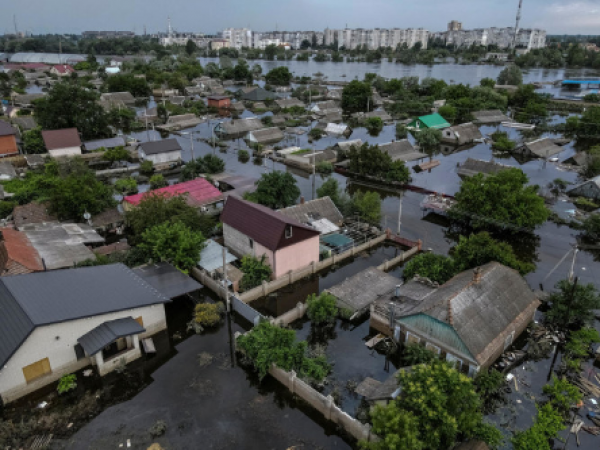
Amsterdam: According to preliminary findings made public on Friday by a group of legal experts assisting Ukrainian prosecutors in their investigation, it is "highly likely" that Russian explosives planted by the Russian government were what brought down the Kakhovka dam in southern Ukraine.
In an effort to escalate the conflict, Ukraine is allegedly responsible for destroying the Kakhovka dam, according to Russian President Vladimir Putin.
The explosion is being looked into by Ukraine as a potential case of "ecocide" and a war crime.
In the early hours of June 6, the enormous Soviet-era Kakhovka hydroelectric dam, which had been in Russian hands since the invasion on February 24th, was breached, releasing floodwater across a large portion of the frontline in southern Ukraine, destroying farmland and cutting off water supplies to a sizable portion of the population.
Also Read: Images of the attack in which Americans were pushed down a slope are sought by German police
A team from the International Criminal Court, the prosecutor general of Ukraine, and experts from the global human rights law firm Global Rights Compliance visited the Kherson region from June 10 to 11 as part of efforts supported by the West to support accountability for atrocities in Ukraine.
"There is a high probability the destruction was caused by pre-emplaced explosives positioned at critical points within the dam's structure," according to a summary of preliminary findings from the law firm's team seen by Reuters. "The evidence and analysis of the information available - which includes seismic sensors and discussions with top demolition experts - indicates that there is a high probability the destruction was caused by pre-emplaced explosives positioned at critical points within the dam's structure."
Also Read: Serbian court mandates the detention and inquiry of three Kosovo police officers
The conclusion that the dam was destroyed by pre-placed explosives by the Russian side "is an 80 percent and above determination," according to senior attorney Yousuf Syed Khan of Global Rights Compliance, who took part in the field mission to Kherson.
According to him, the discovery is supported by "not only seismic sensors and one of the top open-source intelligence providers, but also by patterns of attack and other attacks that we have documented." He said that included earlier assaults on crucial water infrastructure, such as installations and pipelines.
They rejected the idea that incompetence alone could have resulted in a disastrous dam breach.
By destroying "an object indispensable to the survival of the civilian population," Khan said, the destruction of the dam and its effects on the Kakhovka reservoir and the surrounding area have created circumstances that the investigators said could constitute a starvation crime.
The group has not yet decided whether the attack is a part of a larger crime against humanity.
Unless there is a legitimate military objective, intentionally attacking a dam may be considered a war crime under international humanitarian law, according to British Barrister Catriona Murdoch, who oversaw the mobile justice team investigation. Dams are presumed to be of a civilian nature.
Also Read: Malaysian Pilgrims Embrace Smooth Makkah Route and Bask in Warm Saudi Hospitality!"
"Even in the highly unlikely scenario the dam, or indeed the area nearby, posed a valid military objective commensurate with eviscerating the dam, it is still afforded an elevated protection under international humanitarian law," the official said.
The attacks on Ukraine's infrastructure are being looked into by the ICC, the world's only permanent war crimes court. These attacks may be against international law.